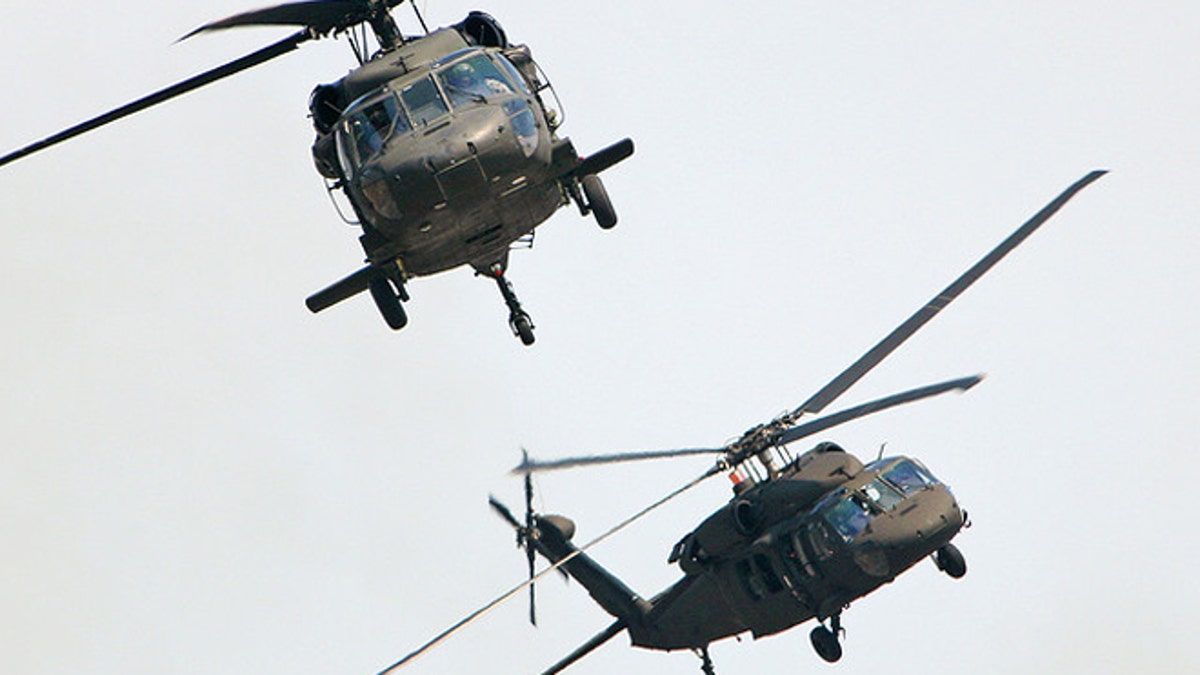
A pair of United States Army Sikorsky UH-60 Blackhawks flies past the crowd during the Combined Arms Demonstration at the Rhode Island National Guard Open House and Airshow, held at Quonset State Airport (KOQU/OQU) in North Kingstown, RI.
U.S. Drug Enforcement Administration officials said on Wednesday that some of their agents were on board a Honduran helicopter last week involved in a fatal anti-drug mission.
Human rights organizations and Honduran news media report that at least four people were killed and several more were wounded when forces aboard the helicopter fired on a boat Friday night in eastern Honduras.
"We were there in a support role, working with our counterparts," said DEA spokeswoman Dawn Dearden in Washington D.C.
U.S. government officials, speaking on condition of anonymity because their statements had not been authorized, said Honduran law enforcement did not initiate fire, but returned fire after being attacked. The officials also said the DEA agents did not fire.
When asked about the shooting, U.S. Embassy official Matthias Mitman in Tegucigalpa provided a written statement that said "the U.S. assisted Honduran forces with logistical support in this operation" as part of efforts to fight narcotics trafficking.
The shooting took place on a river in northeastern Honduras in a region known as Gracias a Dios. National newspapers in Honduras quote local officials as saying the say the victims were fishing.
The State Department says 79 percent of all cocaine smuggling flights leaving South America first land in Honduras, and the U.S .has been working with the Honduran military to stop the drug dealers. The DEA maintains an office in Honduras.
We were there in a support role, working with our counterparts.
In recent years, Honduran authorities working with the DEA and U.S. soldiers from U.S. Joint Task Force-Bravo at Soto Cano Air Base, Honduras, have seized more than a ton of cocaine, along with boats and aircraft, in the same region. A spokesman at JTF-Bravo did not immediately comment on whether they were involved in Friday's incident.
George Withers, a senior fellow at the Washington Office on Latin America, which promotes human rights and democracy in the region, said his organization is concerned that DEA agents are frequently embedded with police and military throughout Central and South America for counterdrug operations.
"We have seen over the years that whenever the military interfaces with the populace, incidents of human rights abuses go way up," he said. "We're concerned that the U.S. is encouraging the use of the military for police work."
Based on reporting by The Associated Press.
Photo: Matt Hintsa @ Flickr.
Follow us on twitter.com/foxnewslatino
Like us at facebook.com/foxnewslatino
